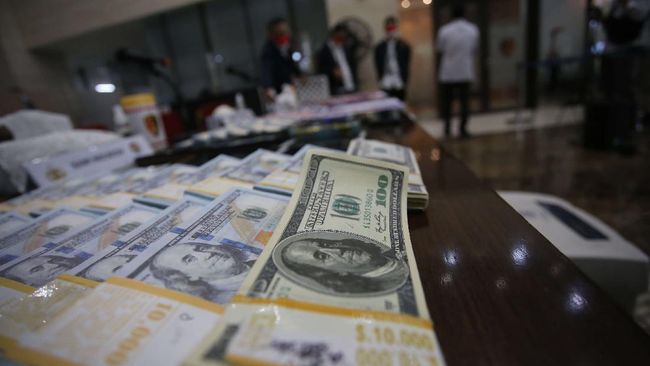Jakarta, CNBC Indonesia – Bank Indonesia (BI) continues to strive so that the rupiah can be used in many countries by cooperating with a number of central banks of other countries. This effort continues to be carried out so that the QR Indonesia Standard (QRIS) can be used for cross-border transactions.
The collaboration began with the Central Bank of Thailand, with this collaboration, Indonesian tourists visiting Thailand can use e-wallet or mobile banking in rupiah currency in Thailand and vice versa.
So tourists just scan the QR code using the application and payments can be made. This facilitates transactions between the two countries. For tourists, this makes it easier because they no longer need to exchange money into local currency.
Governor of Bank Indonesia (BI) Perry Warjiyo said that with this cross-border QRIS, it was possible for partner countries to receive payments from e-wallet applications in Indonesia.
“At this stage, users from Indonesia can now use their mobile payment application to scan a Thai QR Code, to make payments to merchants throughout Thailand,” said Perry.
Executive Director/Head of the International Department of Bank Indonesia (BI) Doddy Zulverdi said this LCS could also be used for the tourism sector.
“It can be used for retail transactions in the tourism sector. This is related to services, it has been implemented in Thailand and Malaysia,” said Doddy.
With this LCS, Indonesian tourists visiting Thailand can use their own currency for transactions, and vice versa. You do this by using a QRIS or QR that has crossed national borders that have been provided in stores in that country.
Doddy gave an example, if Indonesian tourists used to shop in Malaysia, the incoming bill would use the local Malaysian currency, converted to US dollars and then converted to Rupiah.
BOT Deputy Governor Ronadol Numnonda revealed the importance of cross-border payment system connectivity in ASEAN. He believes this cross-border QR will be a safe, efficient and cost-effective alternative to retail payments.
“This service will help e-commerce businesses during these difficult times and lay the groundwork for the resumption of tourism and business flows. More importantly, our cross-border payments relationship with ASEAN’s largest country will be another major catalyst in changing the way ASEAN citizens do business. payments abroad, thereby contributing to regional economic prosperity and digitalization,” he explained.
This project was carried out thanks to the collaboration of various stakeholders from both countries under the joint supervision of BI and BOT. These include the Indonesian Payment System Association (ASPI), the Thai Bankers Association, 13 QRIS providers, RAJA (Rintis, Artajasa, Jalin, and Alto) – four switching operators from Indonesia, National ITMX (NITMX) – a payment system operator from Thailand, and banks ACCD, including Bank Central Asia (BCA), Bank Negara Indonesia (BNI), and Bank Rakyat Indonesia (BRI) from Indonesia, and Bangkok Bank (BBL), Bank Ayudhya (Krungsri), and CIMB Thai Bank (CIMBT) from Thailand.
(hps / hps)
– .


:strip_exif()/i/2004677820.jpeg?f=meta)